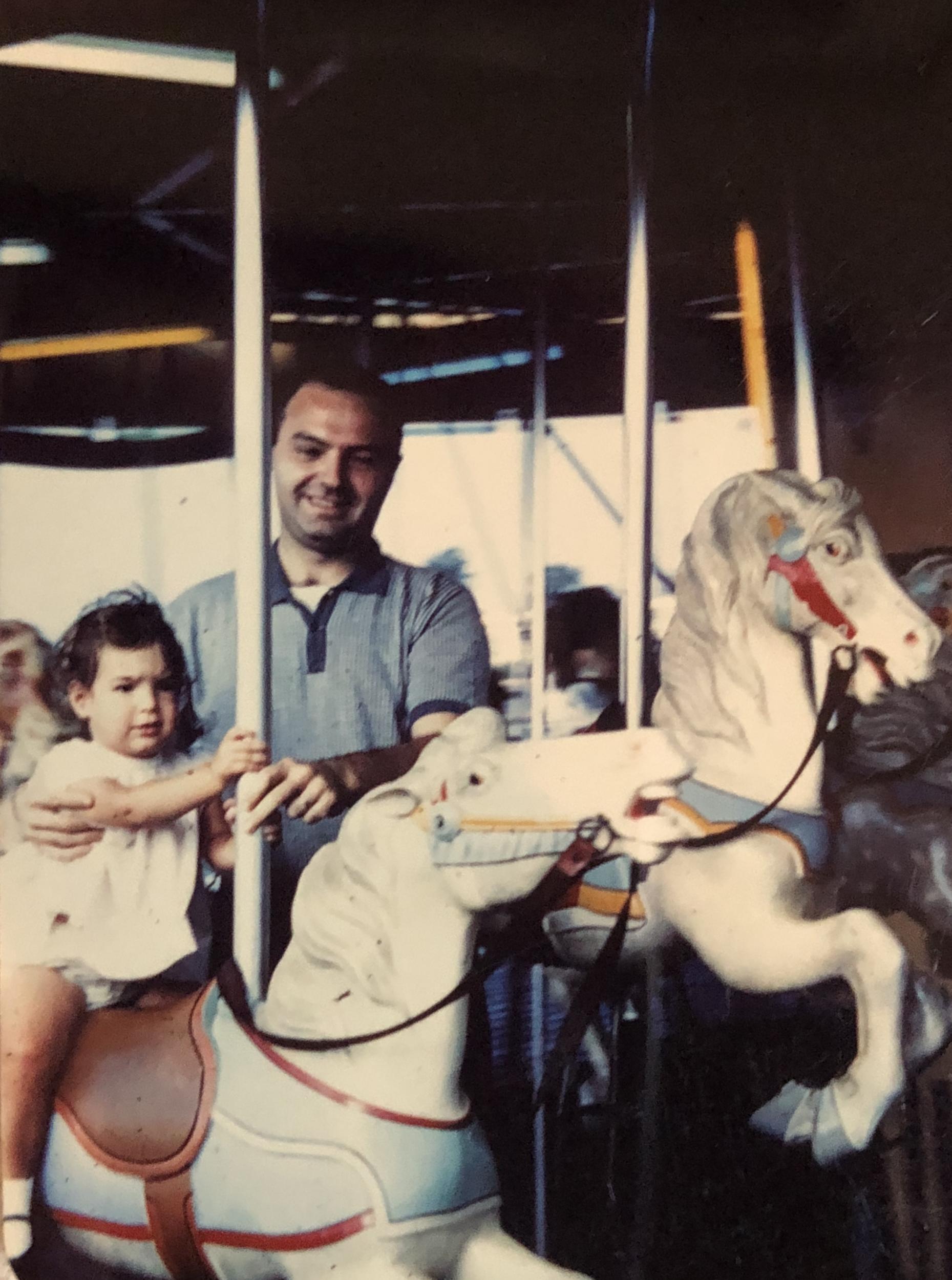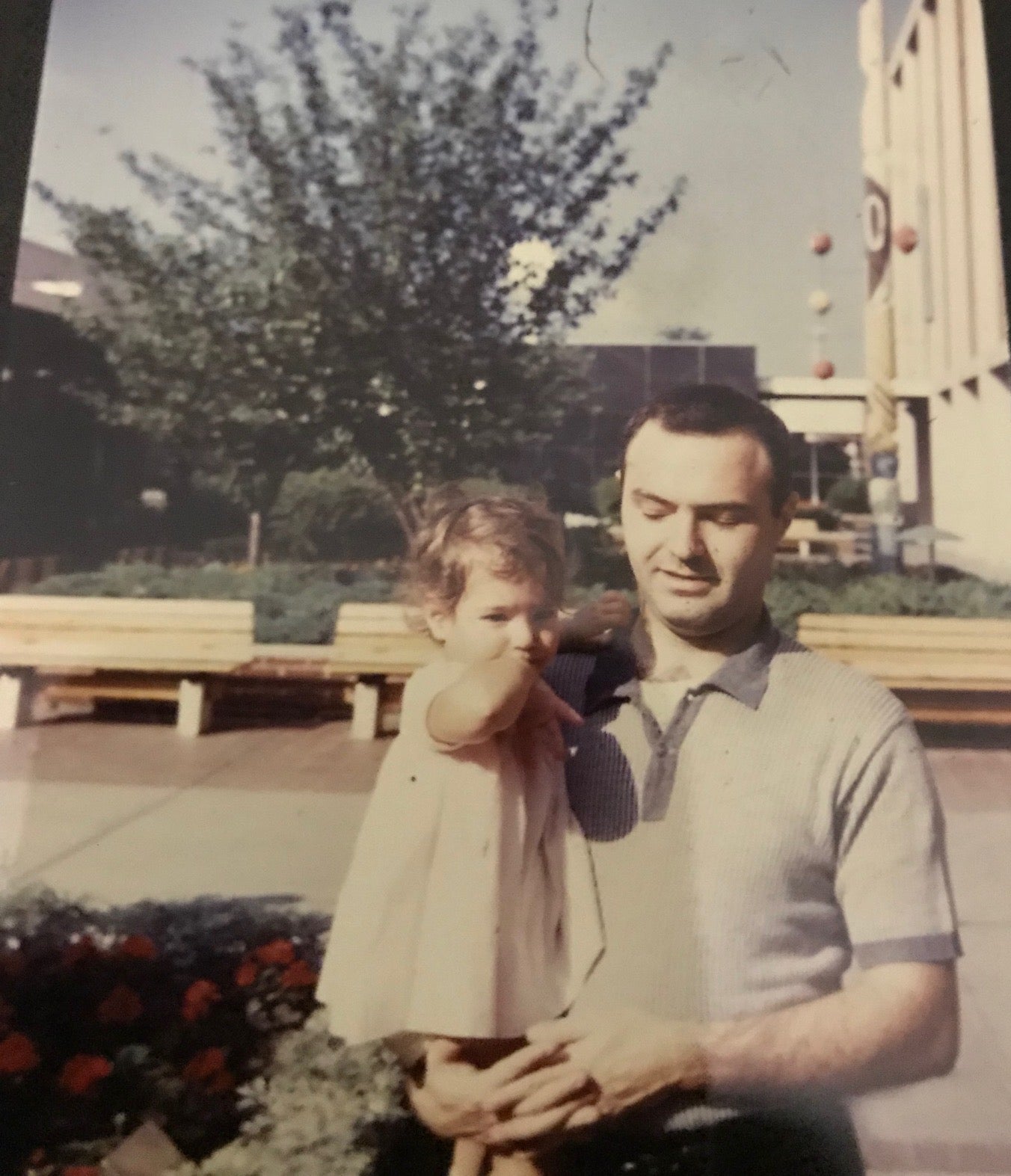This Yom Kippur, I'll light a candle for my father and remember we forgave each other before it was too late
My gruff doctor dad, who used to dissect calves' esophagi with my brothers in the kitchen sink, seemed to hate everything I did. Then a late-night phone call changed my perspective

Your support helps us to tell the story
From reproductive rights to climate change to Big Tech, The Independent is on the ground when the story is developing. Whether it's investigating the financials of Elon Musk's pro-Trump PAC or producing our latest documentary, 'The A Word', which shines a light on the American women fighting for reproductive rights, we know how important it is to parse out the facts from the messaging.
At such a critical moment in US history, we need reporters on the ground. Your donation allows us to keep sending journalists to speak to both sides of the story.
The Independent is trusted by Americans across the entire political spectrum. And unlike many other quality news outlets, we choose not to lock Americans out of our reporting and analysis with paywalls. We believe quality journalism should be available to everyone, paid for by those who can afford it.
Your support makes all the difference.My father was first to argue with my Facebook post advising my classes to "Lead the least secretive life you can." He countered: "Exactly wrong. Repression's the greatest gift of the human intellect."
Friends left laughing emojis after my 80-year-old dad's social media snark, but I was crushed. I thought I was immune to his habit of trash-talking my politics, my profession, my personality — even the city I lived in, his birthplace of Manhattan. “It’s a dirty, scummy terrible place,” he’d told my answering machine when I moved East after college. "You gonna sell your poems on the sidewalk?”
Now his criticism bombarded my screens too. As I graded papers, his latest jibe echoing in my mind, I was gripped by an immigrant student's essay on feeling deserted when his mother moved to America without him. I flashed to a similar story I'd overheard my father tell. Curious to learn more, I called Dad, my fellow night owl.
“How old was Grandpa when his mom abandoned him in Russia?” I said.
“Six," Dad said, sounding unsurprised that I'd phoned so late with the odd question. Then he added, "If you don't have your mother's love, you have nothing."
What about your father's? His disapproval was haunting my mind — and memory. Turning 50, depressed by a back injury, I was suddenly obsessed with the lingering legacy of his difficult patriarch. “Why did Grandpa Harry's mom leave?”
“Well, in the First World War, men were drafted into the Russian army for 20-year stretches. To avoid going, her husband cut off two fingers. But he bled to death.”
Typical of my doctor dad — who’d dissected calves' esophagi with my brothers in the kitchen sink — to share the gruesome details.
When I was a kid, he was a workaholic. During college, he'd hand the phone to Mom when I called. Yet after heart failure forced him to retire, he'd get downright chatty. This could be my chance to untangle my hunch: that his lifelong disappointment with me was linked to his father. "What did your grandma do without a husband?”
“She left my father with her mom in Russia to go to New York,” Dad said, in his telling-a-Yiddish-yarn voice. “She met a man named Shapiro, remarried, and had another kid without telling her new husband about Harry. When he found out, he sent money to get Harry from Russia. At Ellis Island, Harry told the immigration officer his last name was ‘Serota.' The word sierota meant ‘orphan’ in Polish."
“So Grandpa hated his mom for leaving?” I asked, sitting on my couch by the windows, just miles from where Harry landed a century before. Could the broken bond between Grandpa and his mother have fractured my relationship with my father?
“It was love/hate,” Dad said. “Harry worked for two brothers who taught him carpentry and introduced him to their sister, Yetta.”
“They fell for each other and eloped." I recalled the romantic story of my grandparents.
“Well, they lied and told Harry that Yetta was 18, his age. She was really 27."
My grandmother, a sweet, frail lady who used to hug me, whispering "Thanks God," died when I was 12. She'd adored her only son; that’s probably why Dad had a better life than his father.
“Did Grandpa ever forgive his mother for dumping him in Russia?"
“Yeah. She lived to be 99 — enough years to reboot," he chuckled. “When I was little, Dad took my sister and me to visit her every week."
I liked knowing they'd reconciled. Did we have time?
"She outlived four husbands. I knew her as a heavy old Jewish lady, a little gruff,” said the King of Gruff.
The intractable Shapiros wouldn't admit guilt, certainly not my father. On the High Holy Days when you atone for past sins, our rabbi said, "If you ask someone's forgiveness, they can refuse. But after three sincere apologies, you're considered forgiven and the grudge-holder must seek forgiveness for not forgiving." I longed for an apology but Dad didn't think his constant derision of my choices needed atoning. How could he say he was sorry if he wasn't?
"Amazing that Grandpa and his mother reconnected," I said.
"It wasn't perfect. At 90, she moved in with him. My mother was sick too," Dad explained. "Harry took care of them both."
"Really?" I'd mostly witnessed Grandpa's hostility. One Hanukah, my brothers and I found him a special tape of Mein Yiddishe Mama. Harry sang along with the song, then said, "Nu. The other version was better." After Dad saved Harry's life at his hospital, Grandpa growled, "You're no good. You're trying to kill me.”
Dad didn't know I'd skipped Grandpa's funeral to protest how awful Harry treated him. In retrospect, I wished I'd gone. It was on my growing list of regrets.
“My grandma was a beauty in her day. In pictures she looks like my sister," Dad said, “and you.”
That melted me. Not one for small talk, he and I did best when I had a physical ailment he could fix long-distance. After I injured my spine, he'd dismissed the physiatrist who prescribed Oxycodone with the email: "Try heroin while you're at it." Of the chiropractor "realigning" my spine, he texted: "Lucky that moron didn't kill you." I felt protected as he insulted the physicians, rather than me.
At 43, I'd been so excited when he flew in for my long-awaited Soho book launch. Once there, he said, "Stop running naked through the streets. I'll still pay for law or medical school.” I cringed. On my night of glory, I was reminded: I wasn't the child he'd wanted. He echoed Harry, who never forgave him for not becoming his partner at Shapiro's Window Shades, the only Jewish parent unhappy his child was a doctor.
Wrestling with unfinished family lore, I couldn't get off the phone. "You're afraid of your ghosts," I'd once accused Dad.
"If you had my ghosts, you'd fear them too," he replied.
If?
“I’m sorry I skipped Grandpa’s funeral,” I said. “I was pissed he was mean towards you. But I should have gone. For you.”
“Your grandpa never forgave me for leaving New York,” Dad told me. “He expected me to stay around and care for him and my mother as they aged, like in the old country." He ignored my apology. Or was he admitting he'd been hurt when I’d moved 600 miles away from him? "Your grandpa refused welfare and food stamps. He'd take two or three jobs," he continued. "He didn't have much, but he supported me until I made a living."
That was his defense: actions counted, not words. My dad did take care of me. His proudest feat was putting his kids and grandkids through college. He was the one who'd made my creative dreams possible. But I wished I hadn't failed him.
"You gave me your olive skin, good ears and work ethic," I conceded.

"From Grandpa. You only remember him at the end," he said. "With his kidneys failing, his world fell apart. He struck out at everyone. Finally he refused to go on dialysis and died 24 hours later. It made me very sad. He was a great father when I was little. I loved him.”
He'd never told me that. In the twilight of his life, Dad was reexamining his assessment of his father. His tone choked me up. I recalled him singing me poems as lullabies when I was little, taking me to Candy Cone ice cream parlor, driving me to school every day. He pretended it was on his way to the hospital but I later learned it was the opposite direction. Revising my memories, I felt grateful. "Love you, Daddy," I said.
"Me too," he answered. “You know I’m proud of you.”
"You are?”
"Yeah, you stuck to your guns and became a big success."
I smiled, holding back tears, as if it were possible to heal my heart sideways. To paraphrase Dad, if you felt your father’s love — even decades late — you could handle anything. Although I'd always wanted him to apologize, I wished I’d said I was sorry sooner, amazed by what it unlocked.
Then I lost him.
Lighting the first Yahrzeit candle for my dad last Yom Kippur, the saddest day of the Jewish calendar, the questions he'd answered felt upended. I searched for him online, printing hundreds of curt comments and emails to preserve his voice, amazed how connected we were in cyberspace. Seeing my old therapist, a paternal figure, I shared my electronic tête-à-têtes with Dad. They now seemed hip, hilarious and incredibly responsive.
"He had me send him an iPhone picture of my bunion and texted: 'Cure's worse than the disease. So your big toe ain't going to Hollywood,'" I read, laughing while sobbing. "I'm afraid nothing will ever be the same without him."
“It won’t,” he nodded. “But after the grief subsides, you'll be wiser and more powerful, with all the strength your father gave you."
“How do you know?” I asked.
"Because you forgave each other.”
Susan Shapiro, a New School professor, is the author of The Byline Bible and is currently working on a new memoir, The Forgiveness Tour
Join our commenting forum
Join thought-provoking conversations, follow other Independent readers and see their replies
Comments